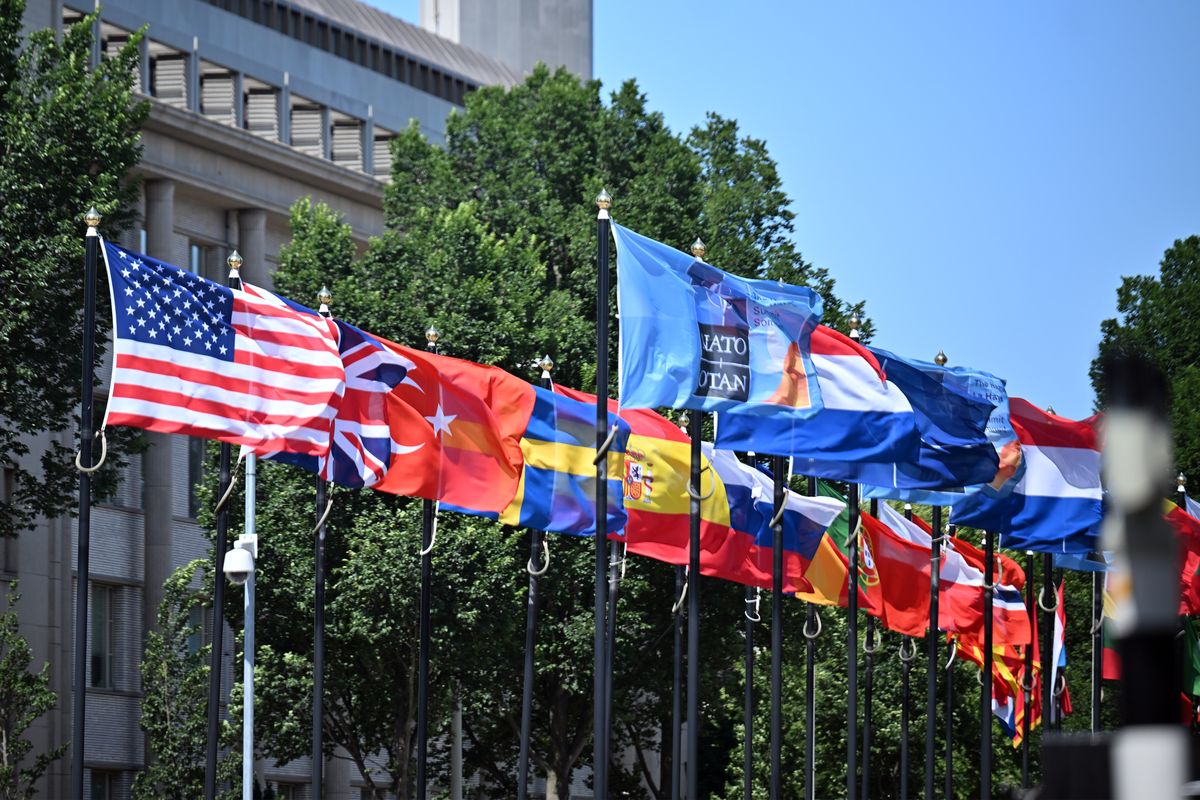Donald Trump’s interactions with our European Allies and his renunciation of the Paris Climate Accords have left our Allies baffled and startled. Faced with “America First” their reaction is to look after themselves. Unfortunately for both President Trump and the Europeans, we’re stuck with each other.
More than anything during his European trip, President Trump’s interlocutors tried to educate him on 21st century realities. Europeans repeatedly reminded him that Europe negotiates trade as Europe, not individual nations. At NATO, responding to his diatribes about flagging contributions, they explained that countries don’t contribute to NATO, but NATO expects them to spend 2% of their GDP on defense, a goal they have until 2024 to meet.
Rather than ranting at Germany’s leader, Angela Merkel, Trump could have started a useful discussion of how German companies can expand on the 667,000 jobs they already provide in the U.S. A survey of German firms here reveals they want to hire but can’t find enough skilled employees. Instead, Merkel was forced to defend a bilateral trade deficit that lies only partly under Germany’s control and in any case rests on outmoded statistics that ignore global value chains.
To top it all off, on his return home, the President made clear he doesn’t care. In withdrawing from the Paris Agreement, he rejected the principles of “we’re all in this together” and “everyone must do their part.” His “America First” lives in a dog-eat-dog world, or as his National Security and Economic Advisors wrote in an Op-Ed, “an arena where nations, nongovernmental actors and businesses engage and compete for advantage.” Defying 197 countries, he insists on re-negotiating a deal that the others say is un-re-negotiable in order to remove the “draconian limits” of a “voluntary” deal. Europeans are not buying it. (Note: Separately, he’ll have to deal with those who want to educate him about the reality of today’s Pittsburgh.)
Trump was unswayed by principles and history, by argument and explanation, by common cause or shared dangers. So, Mrs. Merkel, faced with a man she clearly considers insulting and boorish, tells her people they can’t rely on us any more.
Between Brexit and Trump, the Europeans receive a lot of insults these days. But, in some ways, things are looking up. Europe operates well when France and Germany drive forward together, a real prospect with the election in France of the new President Emmanuel Macron. They enjoy a new ‘sympatico’ partner in North America with Canadian Prime Minister Justin Trudeau. Economic growth and employment, while still fragile, are improving as well. The question is what they can do with their solidarity and prosperity.
Europeans will take steps to show they do understand the 21st century and can act without the United States. They may even spend more on their own defense, particularly border control and internal security. The announcement Friday of a Euro-Chinese pact to save the earth’s climate replaces the U.S.-China understanding of last September that made Paris possible. Europe will certainly maintain a growing relationship with Iran and embrace the newly re-elected President Hassan Rouhani, whatever the Trump Administration decides on sanctions and arming the Gulf. As Macron made clear in his meetings with Russian President Vladimir Putin last week, regardless of how the U.S.-Russia relationship evolves, Europeans will maintain sanctions and a hard line on Russia until they can negotiate a settlement on Ukraine based on the Minsk accords. They can also reduce their minor presence in Afghanistan and leave the training to us. Issue by issue, they can differentiate themselves, but they’ll find it hard to take control. Getting 27 countries to show resolve is tough, but they’ll try. As they look after Europe’s own interests, Europeans can’t just ignore an unpredictable United States, but they can claim more independent space.
Meanwhile, European leaders have elections and their own populists to worry about. The anti-immigration populists were beaten back in Holland and France, but echo still in Hungary, Italy and even Germany. In years past, the answer to Europe’s problems was always “more Europe.” That won’t fly any more. So, Europeans have few strong options internally or externally. Stuck betwixt their own discontents and between bigger powers, Europe stands unable to lead with little more than moral certitude and a shrinking pile of Euros.
In the end, the U.S. and Europe are bound together, not just in institutions and values but in interests and fate. Together, we face digitization, automation, terrorism, Middle East turmoil, Russian belligerence, and Chinese resurgence. From ISIS to cod to laptop bans to data privacy, neither the U.S. nor Europe can make policy alone. Whether we like it or not, we will find each other back together at every turn and every issue. “Go it alone” won’t work for either Americans or Europeans and the sooner we accept our fate and mollify our pretensions to independence, the better off we’ll be.













